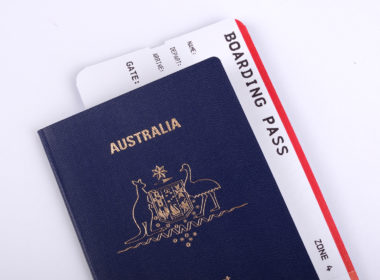Snapshot
- A Federal Court challenge to Australia’s India travel ban was dismissed in Newman v Minister for Health and Aged Care.
- As the ban has now lifted, outstanding constitutional questions were not decided.
- The case may reflect an emerging judicial trend to interpret emergency powers to deal with COVID-19 broadly.
- The case also sheds light on the limitations of our current laws in providing clear guidance about what Australian citizenship actually entails.
On 27 April, as India’s second wave of COVID-19 surged, the Australian government suspended direct flights from India to Australia. Three days later, amidst concern that people who had been in India might be able to enter Australia after transiting in a third country, Health Minister Greg Hunt issued a ‘determination’, imposing a temporary ban on entry to Australia for any person who had been in India in the last 14 days.
Any person seeking to breach the travel ban would have likely faced considerable logistical difficulties. If successful, they would also have faced maximum criminal penalties of five years imprisonment, a $66,600 fine, or both.
The travel ban was made under sweeping emergency powers conferred on the federal health minister by the Biosecurity Act 2015 (Cth). It immediately served as a catalyst for a number of underexplored legal questions. For example, there is uncertainty about the constitutional basis for the emergency powers that the Biosecurity Act provides for. Additionally, the ban was the first time that Australia has made it criminal for citizens to re-enter their home country – a right that at common law has roots as far back as the Magna Carta. This raised questions about whether the federal Parliament is constitutionally able to authorise a Minister to ban Australians from returning home, and, if so, whether the Biosecurity Act met the threshold required to authorise this effectively.
The short-term nature of the ban meant that there was limited time for these questions to be fully explored. Hunt’s determination, which came into effect on 3 May, provided for its own repeal on 15 May, less than two weeks later.
Despite these time constraints, a Federal Court challenge – Newman v Minister for Health and Aged Care [2021] FCA 517 – was lodged on 5 May. It was heard (in part) by Thawley J on 10 May, and dismissed (in part) that same day. Thawley J’s written reasons followed on 14 May, just one day before the travel ban lapsed.
So what was argued in the challenge? What was decided? What questions remain outstanding? And what does it all mean for Australian citizenship?
The proceedings
The challenge was brought by Gary Newman, a 73-year-old Australian citizen, who had been in India since March 2020. Despite efforts to make arrangements to return to Australia, Newman had been unable to do so, due to flight scarcity and cancellations. At the time that the travel ban was imposed, Newman was actively looking for options to return to Australia.
Initially, the Minister sought to argue that Newman did not have standing to bring the proceedings, but this argument was withdrawn at the hearing. In his judgment, Thawley J confirmed that Newman had standing.
Newman’s challenge was divided into two stages. The first stage dealt with the administrative law question of whether banning citizens from returning to Australia fell within the scope of the powers conferred on Hunt by the Biosecurity Act. Newman argued that it did not. Had he succeeded, this would have rendered the ban invalid (at least insofar as it applied to Newman). There would have been no need to consider any further questions.
Thawley J heard the first stage of Newman’s challenge on 10 May, and dismissed Newman’s arguments that day itself. That made the second stage of the challenge relevant. It dealt with two constitutional questions: was there a constitutional head of power to support the provisions in the Biosecurity Act that Thawley J had found provided authority for the travel ban, and was it constitutionally permissible for Parliament to authorise a Minister to ban Australian citizens from re-entering Australia in these circumstances? It would also have been open to Newman to appeal against Thawley J’s decision.
However, the very tight timeframe between Thawley J’s decision and the ban lifting meant that neither litigating the second stage of Newman’s challenge nor mounting an appeal was practical. The challenge was discontinued on 14 May, the same day that Thawley J’s written reasons were provided.
Determinations made by the [Health] Minister cannot be disallowed by Parliament (Biosecurity Act 2015, 477(2)). Courtesy of a statutory device described historically as a ‘Henry VIII’ clause, and by counsel for the Minister Craig Lenahan as a ‘legislative bulldozer’, determinations also override ‘any other provision of Australian law’ (s 477(5)).
The administrative law arguments, and why they were dismissed
The travel ban determination was made pursuant to a power conferred by s 477 of the Biosecurity Act. Newman made three administrative law arguments, namely:
- that Hunt failed to comply with the preconditions for exercising the power under s 477 before making the determination;
- that s 477, properly construed, did not authorise the ban because it did not allow determinations to be made with extraterritorial effect; and
- that, due to the operation of the principle of legality, s 477 did not authorise the Minister to make a determination banning Australian citizens from re-entering Australia.
An immediate and obvious hurdle for Newman was that the authorising provision, s 477, was drafted in extremely broad terms. In circumstances where a ‘human biosecurity emergency’ (such as the COVID-19 pandemic) has been declared, s 477(1)(a) gives the Health Minister power to ‘determine any requirement that he or she is satisfied is necessary’ to prevent or control the declared disease from entering Australia or from emerging, establishing or spreading within Australia. Determinations made by the Minister cannot be disallowed by Parliament (s 477(2)). Courtesy of a statutory device described historically as a ‘Henry VIII’ clause, and by counsel for the Minister Craig Lenahan as a ‘legislative bulldozer’, determinations also override ‘any other provision of Australian law’ (s 477(5)).
The argument that Hunt failed to comply with the preconditions for making the determination
Despite the breadth of the power under s 477(1), there were certain preconditions, provided for in s 477(4) that Hunt needed to be satisfied of before making a determination. Relevantly, these preconditions required Hunt to be satisfied that the travel ban was:
- likely to be effective in, or to contribute to, achieving the purpose of preventing the entry and spread of COVID-19 in Australia (s 477(4)(a);
- appropriate and adapted to this purpose (s 477(4)(b)); and
- no more restrictive and intrusive than required in the circumstances (s 477(4)(c)).
The Biosecurity Act does not expressly prescribe any specific materials that the Health Minister must have regard to before making a determination. Before making the travel ban determination, Hunt considered various documents, including a letter from the Chief Medical Officer (‘CMO’) which advised that a pause on arrivals from India until 15 May would be an ‘effective and proportionate’ measure that would ‘likely allow [Australia’s quarantine system] to recover capacity’. The CMO also noted that banning entry would have serious potential consequences for Australian citizens and permanent residents in India, including serious injury and death.
Newman argued that, despite this advice, Hunt could not have been satisfied of the preconditions in s 477(4), because both he and the CMO failed to take into account a number of matters that were necessarily relevant. In Avon Downs v Commissioner for Taxation (1949) 78 CLR 353; [1949] HCA 26, Dixon J held that excluding a relevant factor from consideration can render a conclusion liable to review where it is the decision-maker personally who must reach a state of satisfaction. In Minister for Aboriginal Affairs v Peko-Wallsend (1986) 162 CLR 24; [1986] HCA 40, the High Court held that, even where legislation does not expressly state that a decision-maker must have regard to particular matters, certain considerations may be mandatory by necessary implication, having regard to the subject matter, scope and purpose of the legislation.
One factor that Newman argued Hunt failed to consider was the risk of COVID-19 spreading through Australian prisons if Australians breached the travel ban, returned to Australia and were subject to criminal penalties as a result. Newman argued that this was something that needed to be considered in order to be satisfied of the ban’s efficacy and proportionality. Thawley J found that this was not a consideration which Hunt was required to have regard to by necessary implication. Moreover, he held that there was no serious prospect that Australians would return to Australia in spite of the ban, and that they would then be arrested, denied bail, and detained in high-density prisons with no protective measures to minimise the spread of COVID-19 (at [59-[60]).
Newman also argued that Hunt failed to consider less restrictive or intrusive measures before imposing the travel ban. Thawley J rejected this argument. He noted that, in accordance with the CMO’s advice, various exceptions had been carved out, where the ban did not apply. These included exemptions for medical evacuation flights and medical assistance teams. Thawley J held that this indicated that Hunt had turned his mind to how to reduce the restrictive or intrusive impact of the ban (at [61]-[62]).
With no mention of Australian citizenship in the Constitution, and no case law directly on point, the case for a constitutional right of entry is very speculative. It must await another day for consideration. So too must arguments that elements of the Biosecurity Act are not supported by a Commonwealth head of power.
The extraterritorial effect argument
Newman also argued that the travel ban operated with extraterritorial effect because it applied to people who were outside Australia, and that this was not authorised by s 477. There is a statutory interpretation principle that statutes are presumed not to operate extraterritorially. Thawley J cut this argument off at the knees, finding that the travel ban did not actually operate extraterritorially, because no offence occurred until a person actually entered Australian territory (at [63]).
The principle of legality argument
Finally, Newman argued that due to the principle of legality, the Biosecurity Act did not provide authority for a determination that banned Australian citizens from entering Australia.
The principle of legality is a statutory interpretation principle that provides that statutes will not be interpreted to abrogate or limit fundamental common law rights unless Parliament makes it unmistakeably clear that this was what it intended to do. Parliament is ultimately allowed to abrogate these rights, but the principle of legality requires it to be clear in doing so, and wear any associated political cost.
Both parties accepted, as various cases suggest, that Australian citizens had a fundamental common law right to re-enter Australia. The question therefore was whether the Biosecurity Act provided unmistakeably clear authority for a ban that would abrogate this right by banning citizens from returning to Australia.
Thawley J held that several provisions of the Biosecurity Act clearly indicated that its intention was to authorise limits on people moving in and out of Australia. He held that it was not possible to read s 477(1) as only authorising limits on entry for non-citizens, because this would run contrary to the statutory purpose of conferring very broad powers on the Minister to allow flexibility in dealing with biosecurity emergencies. He noted that the utility of the power in s 477(1) ‘would be significantly adversely affected if a Determination… could prevent entry of non-citizens in a human biosecurity emergency but not prevent the entry of citizens’ (at [95]). Accordingly, Newman’s principle of legality argument failed.
Outstanding constitutional questions
Due to the deep common law links between citizenship and the right of return, it has also been suggested citizens may have an implied constitutional right to enter Australia that could not be overridden by clear terms in the Biosecurity Act (see Helen Irving, ‘Still Call Australia Home: The Constitution and the Citizen’s Right of Abode’ Sydney Law Review, Vol. 30, No. 1, pp. 133-153, 2008). This was an argument that would have been litigated in the next stage of Newman’s case, had it not been withdrawn. With no mention of Australian citizenship in the Constitution, and no case law directly on point, the case for a constitutional right of entry is very speculative. It must await another day for consideration. So too must arguments that elements of the Biosecurity Act are not supported by a Commonwealth head of power.
What does this mean for Australian citizens?
Newman’s case illustrates that, in the absence of a bill of rights in Australia, rights that are fundamentally attached to citizenship under common law can be easily displaced by statute, at least in a time-sensitive emergency context. A bill of rights, or clearer constitutional text, may have meant that the outstanding constitutional questions about a citizens’ right of entry could have been considered alongside the administrative law questions, rather than being deferred. The case may also indicate an emerging trend, first reflected in Palmer v Western Australia [2021] HCA 5; (2021) 95 ALJR 229, of courts applying broad interpretations to legislation delegating emergency powers to deal with the COVID-19 pandemic.





